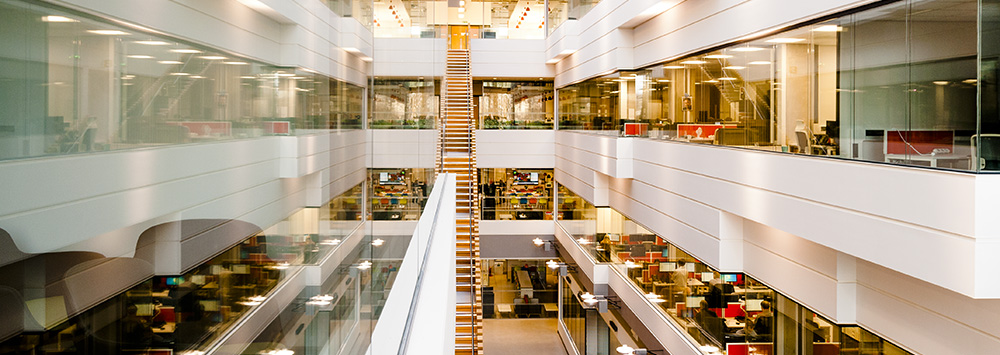
Our expertise in materials chemistry, paired with our unparalleled open-access facilities and dynamic support infrastructure, means that Royce at the University of Liverpool are revolutionising research and development.
Through the use of Computer Aided Materials Science (CAMS) and high-throughput (HT) automation we aim to develop new approaches to materials science, re-thinking potential applications and bringing it into the 21st Century. The potential that new, and at scale, aggregations of automation, control and cognitive computing can offer is limitless.
We provide flexible access to our lab facilities, equipment and technical support, to help you quickly scale-up your capacity and achieve greater precision, accuracy and speed in your research.
At Liverpool we focus on three Royce research areas: chemical materials design, electrochemical systems, and imaging and characterisation. The University of Liverpool leads the chemical materials design theme, alongside the University of Manchester.

Core Facilities
Royce Facilities are hosted across our Faculty of Science and Engineering, primarily in the Materials Innovation Factory, the Stephenson Institute of Renewable Energy, and Department of Materials, Design and Manufacturing Engineering.
Materials Innovation Factory
Department of Materials, Design and Manufacturing Engineering
Stephenson Institute of Renewable Energy
Technology Platforms
Royce Technology Platforms are groupings of cutting-edge facilities and expertise. Each Platform has a Technology Platform Lead responsible for developing and enhancing the facilities and supporting related research activities which utilise Royce Equipment.




